Indian Nations From Washington State Join Opposition to DAPL Pipeline
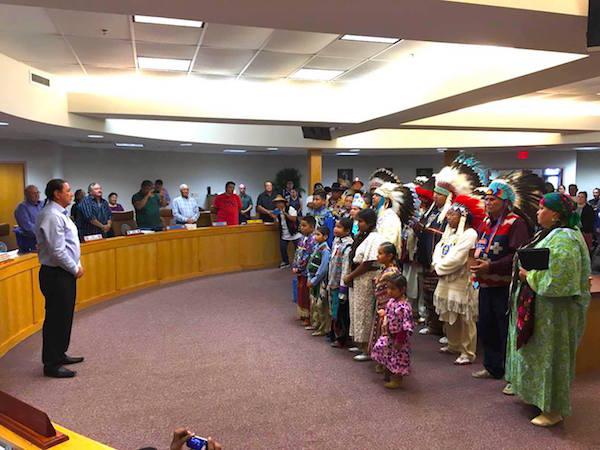
Standing Rock Sioux Chairman David Archambault II welcomed a delegation of eight Indian nations from Washington State on Tuesday August 30 who joined the growing opposition to the Dakota Access Pipeline that threatens the tribe’s water supply and sacred places on Oceti Sakowin Treaty lands.
The Yakama Nation, Swinomish Indian Tribal Community, Lummi Nation, Puyallup Tribe, Nisqually Indian Tribe, Suquamish Tribe, Lower Elwha Klallam Tribe and Hoh Tribe traveled with a large delegation from the Pacific Northwest with a sacred totem pole to demonstrate spiritual support. After a blessing at the Standing Rock camp near the river, the totem pole will be permanently raised at the Turtle Lodge on the Sagkeeng First Nation in Manitoba next week.
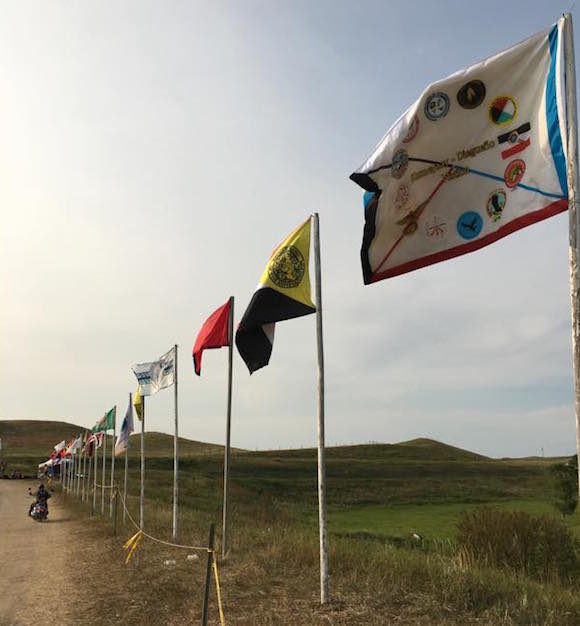
“Yakama is humbled and honored to stand beside our brothers and sisters of the Standing Rock Sioux. We’re observing a peaceful and prayerful gathering to move an entire country. We stand united in solidarity with the natural laws of this land, advocating for responsible decision making and honorable communications,” said Yakama Chairman JoDe Goudy.
“Together, we express to the U.S. government that now, more than ever, is the time to fulfill the trust obligations laid out within the treaties and historical interactions with the Native peoples of this land. Until such things come to pass, the spirit and voice of all peoples shall unite with Standing Rock. One voice, one heart, and one spirit to speak for those things that cannot speak for themselves.”
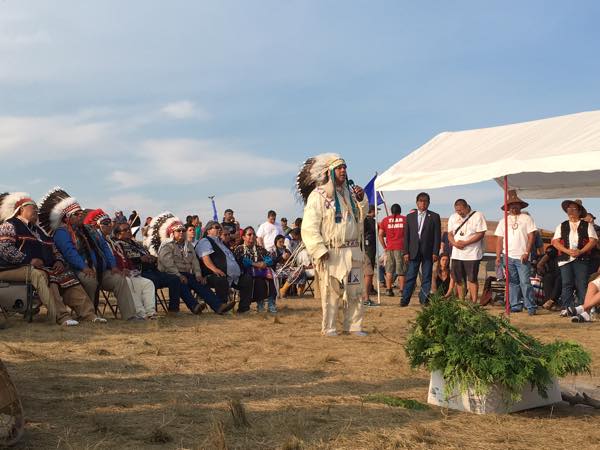
Carver Jewell James of the Lummi Nation said this is the fourth totem pole he has carved to unite people standing to protect the earth.
“This is about little people against billionaire corporations,” he said. “Standing Rock is clearly opposed to the pipeline, and I’m here to celebrate their clarity and their willingness to stand up.”
The tribes urged the United States District Court to rule in favor of the Standing Rock Sioux Tribe's request to issue an injunction that stops construction of the pipeline until the Tribe’s waters and cultural resources are protected.
The Standing Rock Sioux Tribe is arguing in court that the Dakota Access Pipeline was fast-tracked by the federal government, which is a direct violation of the Tribe's rights as a sovereign nation because it will hurt the Tribe’s safe drinking water and historic and cultural resources. The Tribe has asked the United States government to conduct a more stringent environmental review to ensure the protection of the Tribe's treaty rights and sacred places.
Swinomish Chairman Brian Cladoosby, who also serves as NCAI president, said, “We are a placed-based society. We live where our ancestors are buried. Our culture, laws, and values are tied to all that surrounds us, the place where our children’s future will be for years to come. We cannot ruin where our ancestors are buried and where our children will call home, uproot ourselves and move to another place. We cannot keep taking for granted the clean water, the salmon and buffalo, the roots and berries, and all that makes up the places that our First People have inhabited since time immemorial. Our futures are bound together.”
More than 150 tribes so far have sent resolutions and letters of support to show solidarity with the Standing Rock Sioux and the Seven Council Fires of the Lakota’s efforts to stop the pipeline.
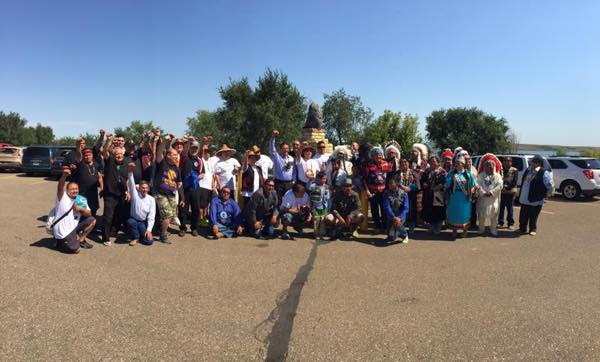
“Words can’t express how thankful we are for all of the prayers, support, letters and donations we have received,” said Archambault. “It inspires us every day on our mission to protect this area for future generations and all who use it.
“We’ve seen the success our friends from Washington state have had in their battles to protect treaty rights against the transport of fossil fuels,” Archambault continued. “Their support is crucial in the protection of our land, water, and cultural resources, as well as all of our sovereign rights that we are asking Assistant Secretary of the Army for Civil Works Jo-Ellen Darcy to honor.”
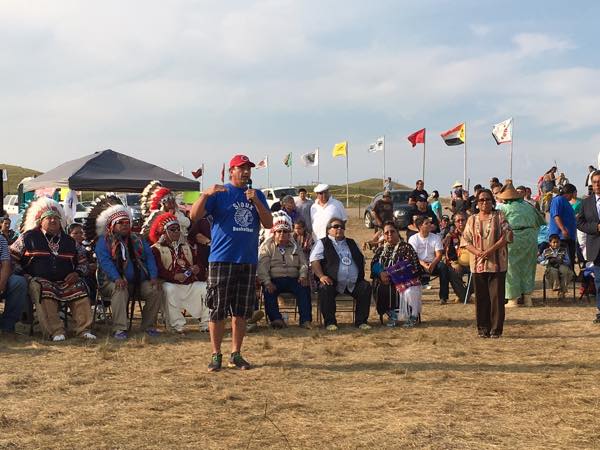
As they gathered on the banks of the Cannonball River to pray for water, several leaders spoke of similar challenges to their treaty rights, lands and ways of life. Some tribes in attendance won recent battles against proposed oil and coal export terminals that violate treaty rights, endangered fish and shellfish, and threatened the tribes’ very existence.
“I am here to stand with the Standing Rock people because my people are facing the same threats to bear the risk of development for the Puyallup Tribe,” said Councilman David Bean. “It’s an LNG terminal that will be built in the middle of our reservation and threaten our treaty protected resources.”
The peaceful camp near the river is the first time since 1875 that all the Lakota tribes have gathered at the Cannonball River. Their efforts to save their water have inspired hundreds of tribes, celebrities and activists from across the country to show their support. More than 180 tribes have written letters to President Obama and the U.S. Army Corps of Engineers asking them to fulfill their trust obligation to tribes and reconsider the construction of the Dakota Access Pipeline.
“Everyone has heard that this pipeline would be more than 1,100 miles long and would transport more than half a million barrels of crude oil every day across our lands,” said Cedric Good House, a traditional leader for the Standing Rock Sioux Tribe.
“What they don’t know are the irreplaceable sacred places across the landscape and the deep cultural and spiritual knowledge that is tied to them,” he said. “These are the places and the knowledge that make us who we are today as a tribe. I plan on telling my grandchildren about the time when tribes across the country stood up and fought for treaty, culture, and the future. And we fought for the future of safe drinking water for all Americans. No longer is the world watching us, the world is with us.”

Read more at http://indiancountrytodaymedianetwork.com/2016/08/31/indian-nations-washington-state-join-opposition-dapl-pipeline-165641